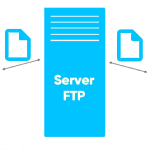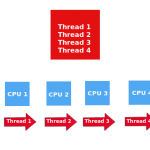A Virtual Dedicated Server (VDS) is a type of hosting service that provides users with a virtualized server environment. It combines the benefits of a dedicated server and virtualization technology.

In a VDS setup, a physical server is divided into multiple virtual servers using a hypervisor. Each virtual server operates independently and has its own dedicated resources, including CPU, RAM, storage, and bandwidth. This isolation ensures that the performance of one VDS does not affect the others on the same physical server.
The users of a VDS have full control over their virtual server instance. They can install and configure any operating system, software applications, and customize the server environment to meet their specific requirements or they can tell their support to do if the service is managed. This level of control is similar to what is available with a dedicated server, but at a lower cost since multiple virtual servers are sharing the resources of a single physical server.
VDS hosting is often preferred by businesses or individuals who need more control and flexibility than what is provided by shared hosting, but do not require the entire resources of a dedicated server. It offers a balance between cost-effectiveness and performance, making it a popular choice for hosting websites, web applications, and other services.
There are several reasons why you might consider choosing a Virtual Dedicated Server (VDS) for your hosting needs. Here are some advantages of opting for a VDS:
- Dedicated Resources: With a VDS, you have dedicated resources allocated to your virtual server, including CPU, RAM, storage, and bandwidth. This means that the performance of your server is not affected by the activities of other users sharing the same physical server.
- Customization and Control: VDS hosting provides you with full root or administrator access to your virtual server. This allows you to install and configure any operating system, software applications, and settings according to your specific requirements. You have complete control over your server environment, enabling customization and flexibility.
- Scalability: VDS hosting allows for easy scalability. You can adjust the resources allocated to your virtual server based on your changing needs. If your website or application experiences increased traffic or requires more computing power, you can easily upgrade your VDS plan to accommodate those demands.
- Cost-Effectiveness: Compared to a dedicated server, a VDS is more cost-effective. Since multiple virtual servers share the resources of a single physical server, the overall cost is distributed among the users. This makes VDS hosting a more affordable option for businesses or individuals who require a higher level of control and performance but have budget constraints.
- Advanced Security: With a VDS, your server operates independently of other virtual servers on the same physical server. This isolation provides an added layer of security, as any vulnerabilities or issues in one virtual server do not affect the others. Additionally, you can implement your own security measures, such as firewalls and access controls, to enhance the security of your virtual server.
- Reliability and Uptime: VDS hosting typically offers high levels of uptime and reliability. Since each virtual server is isolated, issues with one virtual server are less likely to impact the others. Furthermore, reputable hosting providers often have robust infrastructure and redundant systems in place to ensure maximum uptime for their VDS customers.
Overall, choosing a VDS is beneficial when you require more control, customization, and dedicated resources than what shared hosting can offer, but without the higher costs associated with a dedicated server. It provides a balance between performance, flexibility, and affordability for your hosting needs.














